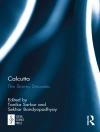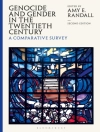Religion meant far more in early modern England than church on Sundays, a baptism, a funeral or a wedding ceremony. The Church was fully enmeshed in the everyday lives of the people; in particular, their morals and religious observance. The Church imposed comprehensive regulations on its flock, and it employed an army of informers and bureaucrats, headed by a diocesan chancellor, to enable its courts to enforce the rules. Church courts lay, thus, at the very intersection of Church and people.
The courts of the seventeenth century – when ‘a cyclonic shattering’ produced a ‘great overturning of everything in England’ – have, surprisingly, had to wait until now for scrutiny. Church Courts and the People in Seventeenth-Century England offers a detailed survey of three dioceses across the whole of the century, examining key aspects such as attendance at court, completion of business and, crucially, the scale of guilt to test the performance of the courts.
While the study will capture the interest of lawyers to clergymen, or from local historians to sociologists, its primary appeal will be to researchers in the field of Church history. For students and researchers of the seventeenth century, it provides a full account of court operations, measuring the extent of control, challenging orthodoxies about excommunication, penance and juries, contextualising ecclesiastical justice within major societal issues of the times and, ultimately, presents powerful evidence for a ‘church in danger’ by the end of the century.
Praise for Church Courts and the People in Seventeenth-Century England
‘The book is an excellent study and while it could be described as ‘local history’ by its being rooted in its case studies, it pans out and makes one of the most valuable studies of ecclesiastical justice in the seventeenth century that there is.’
Ecclesiastical Law Journal
‘Andrew Thomson’s impressive study of church courts in three dioceses in the seventeenth century is one of decline and a missed opportunity at the Restoration in 1660 to reform them.’
Church History
‘serves as an invaluable guide to the institutions for non-experts’
The Journal of Ecclesiastical History
‘Thomson’s case-study of the courts at Winchester, Worcester and Wells, at work and in decline… makes a thoughtful contribution to the historiography of ecclesiastical justice. It will no doubt have legal historians reconsidering the church courts’ place across the entire seventeenth-century English experience.’
The English Historical Review
‘..the story that he tells of the decline of these courts over the course of the seventeenth century would no doubt have given William Laud and even his more purely Calvinist colleagues indigestion had they lived long enough to read it.’
Journal of British Studies
‘The book is a major contribution to understanding the scope of these courts, their claims over people’s lives and their decline. It also serves as a reliable guide to understanding the processes and structures of the courts in question. Thomson deserves congratulation for mastering what Geoffrey Elton once described as these ‘strikingly repulsive’ church court records.’
Midland History
Cuprins
List of abbreviations
Foreword – Trevor Beeson
Acknowledgements
Map: The Dioceses of England And Wales 1535-4
Introduction
1 Fundamentals: courts and officials
2 The nature of Church discipline
3 The extent of Church discipline
4 Explaining the decline
5 The case of Worcester
6 The failure of reform
Appendices
1 Diocesan chancellors
2 The nature of Church discipline
3 The extent of Church discipline
4 Explaining the decline of the courts
5 The case of Worcester
Bibliography
Index
Despre autor
Andrew Thomson read History at King’s College London in the 1950s and taught the subject, mainly as head of department at sixth form college level, from which, after 35 years, he took early retirement to devote himself to research and writing. He gained a doctorate from the University of London in 2004 on the clergy of the Diocese of Winchester before and after the Civil Wars, and has continued to write books and articles on seventeenth-century bishops, clergy, and the church courts of Winchester and other dioceses.












